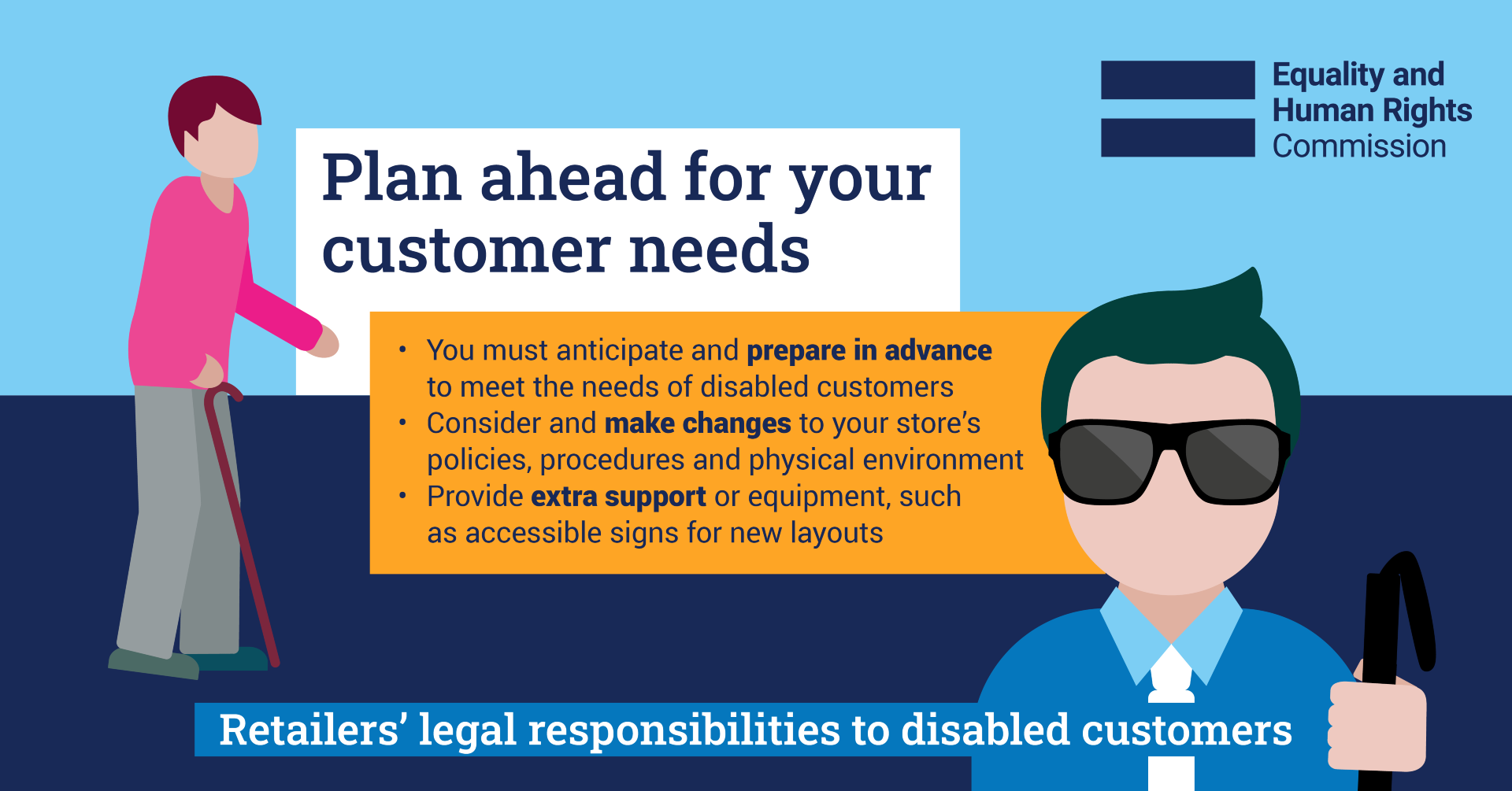What countries does this apply to?
- England
- Scotland
- Wales
Step 2. Plan ahead for your customer needs
You are legally required to plan ahead and, if necessary, to adjust your service to meet the needs of disabled customers. Disabled people may have one or many visible or hidden impairments, including mobility issues, mental health problems or progressive conditions such as cancer.
The requirement to plan ahead and make changes to your service to meet the needs of disabled customers is known legally as “the duty to make anticipatory reasonable adjustments".
Your overall aim should be, as far as possible, to remove or reduce any substantial disadvantage faced by your disabled customers which would not be faced by non-disabled customers.
You can do this in three different ways:
1) Changing the way things are done, such as your organisation’s general policies and practices
- Consider the way disabled customers can order and receive shopping including an option to place orders by telephone
- Do not deny disabled customers priority support if they say they require special assistance
- Engage with disabled people and organisations that represent them to understand how government measures, such as social distancing, need to be adapted to meet the needs of customers with various impairments. Working together will often lead to the best solution for everyone.
2) Make physical features in stores accessible for disabled customers
- If you have floor markings, choose the colour and shape of floor markings so that they do not disorientate people with perceptual difficulties, such as those with dementia
- If you have an outdoor queuing system, make sure it does not remove disabled parking bays and provides adequate seating if needed, as well as clear signs
- Provide accessible toilet facilities
- Allow companions to shop with disabled customers
- Think through the layout of the shop to make sure any COVID-19 measures, such as social distancing, haven’t affected any adjustments you had already made for disabled people, such as the width of aisles or till points
- Be aware that the use of facemasks and plastic screens make it harder for people to lip-read or hear what’s being said , so the use of hearing loops, reduction in background noise (potentially including piped music) become even more important.
Physical features can also include online shopping:
- Ensure that your customer record system flags any disabled customers. This means that during any future pandemic wave customers who are not in the Government’s shielding category will still be able to book online delivery slots as easily as possible
- Build in fixed time slots for priority delivery to ensure that disabled customers can depend on their carers to help them when shopping is delivered.
3) Providing extra equipment or assistance to help disabled customers
Think about whether any of the measures you have put in to be coronavirus secure have affected any of the reasonable adjustments you already had in place. Consider what you might need to do now in addition to this such as:
- Providing maps or visual guides of the new shop layout to help customers with autism or mental health issues to prepare for a shop visit
- Asking and informing customers queuing and in store that if anyone has a disability or health condition, is older or a carer, they can get priority support
- Ensuring accessible signs are in place so that every customer understands the reasonable adjustments that are available. Your staff should be able to verbally explain these signs when required to
- Don’t make assumptions – disabled customers may have a badge or sunflower lanyard, carry a condition-specific or carers card, show a Blue Badge or might not have any identification at all. Having a clear plan to anticipate the needs of disabled people should mean that your service is able to meet the needs of most customers without needing to show identification.

Page updates
Published:
1 September 2021
Last updated:
1 September 2021
